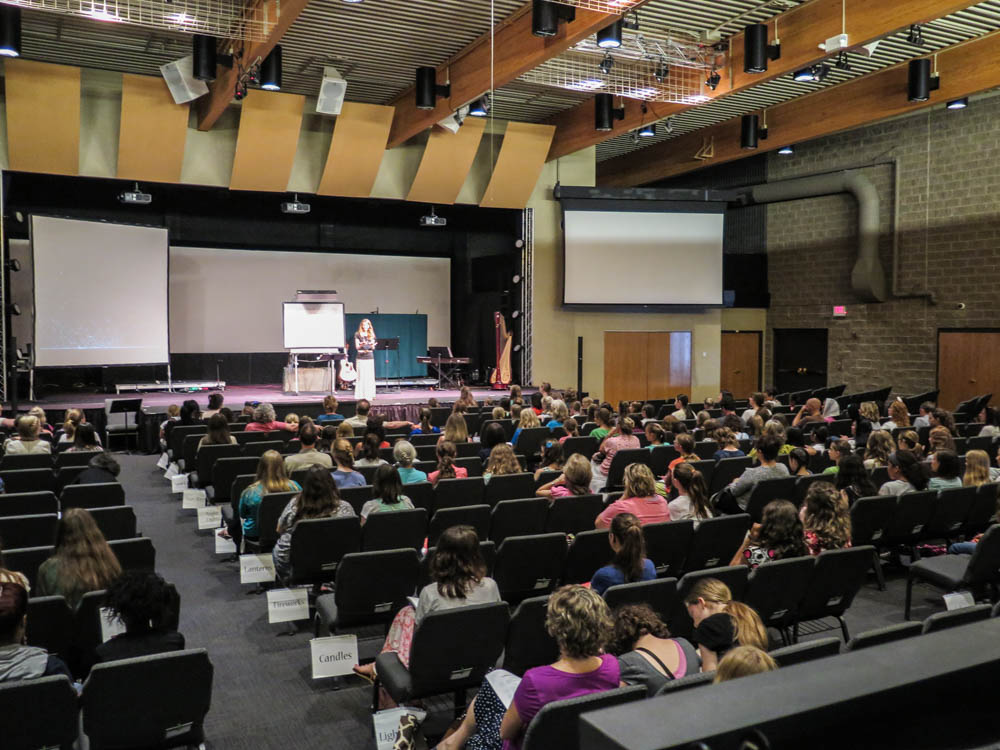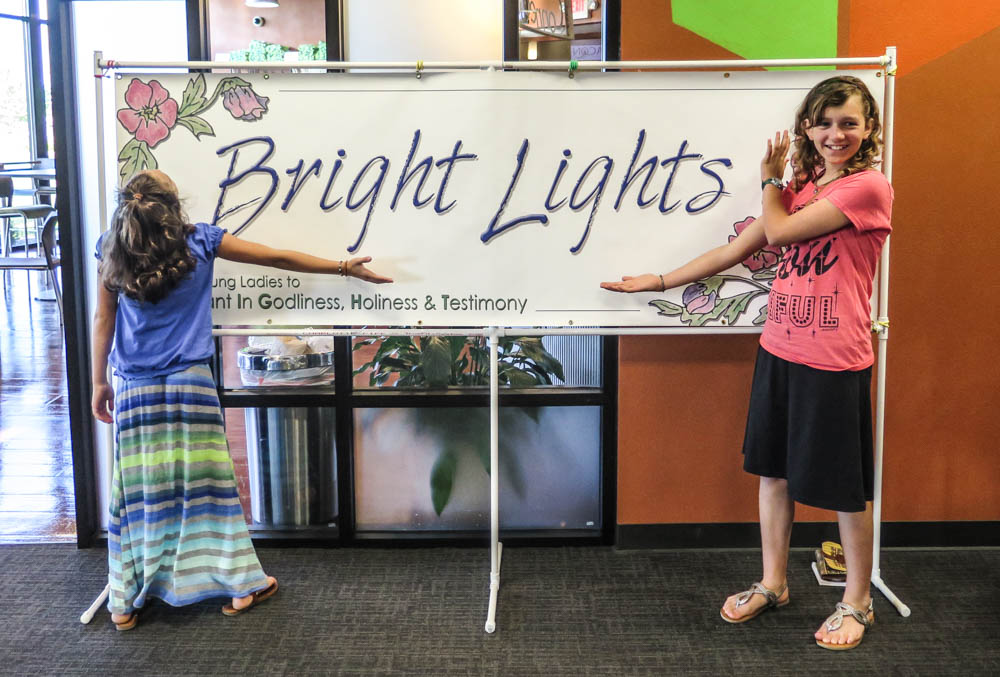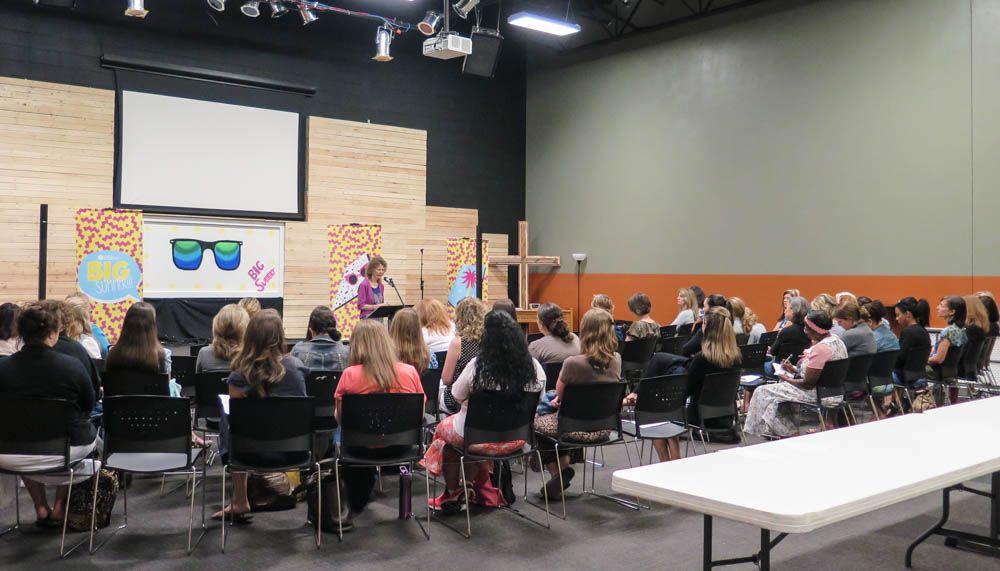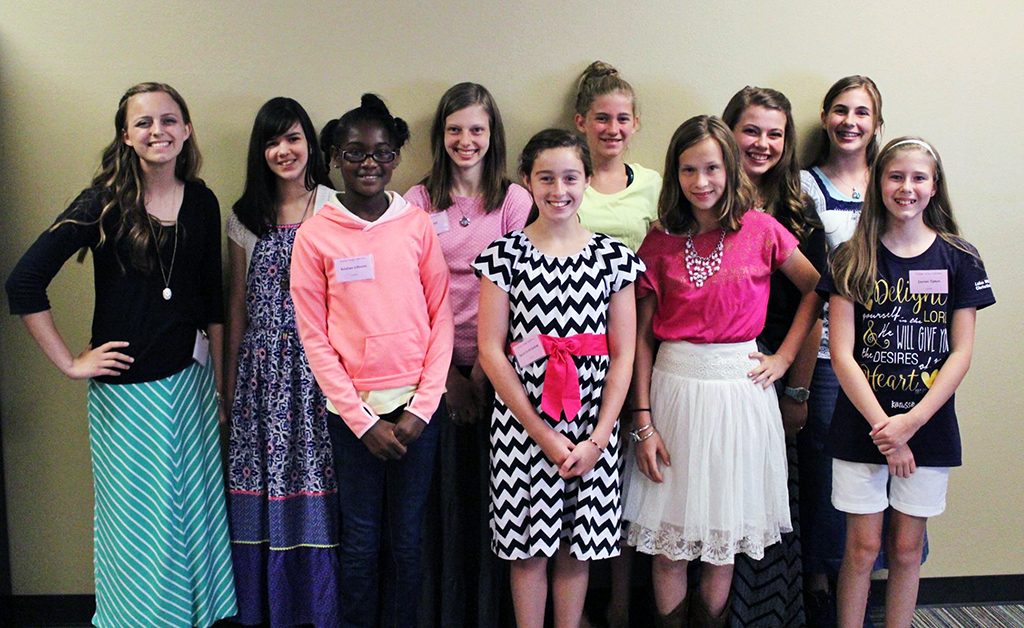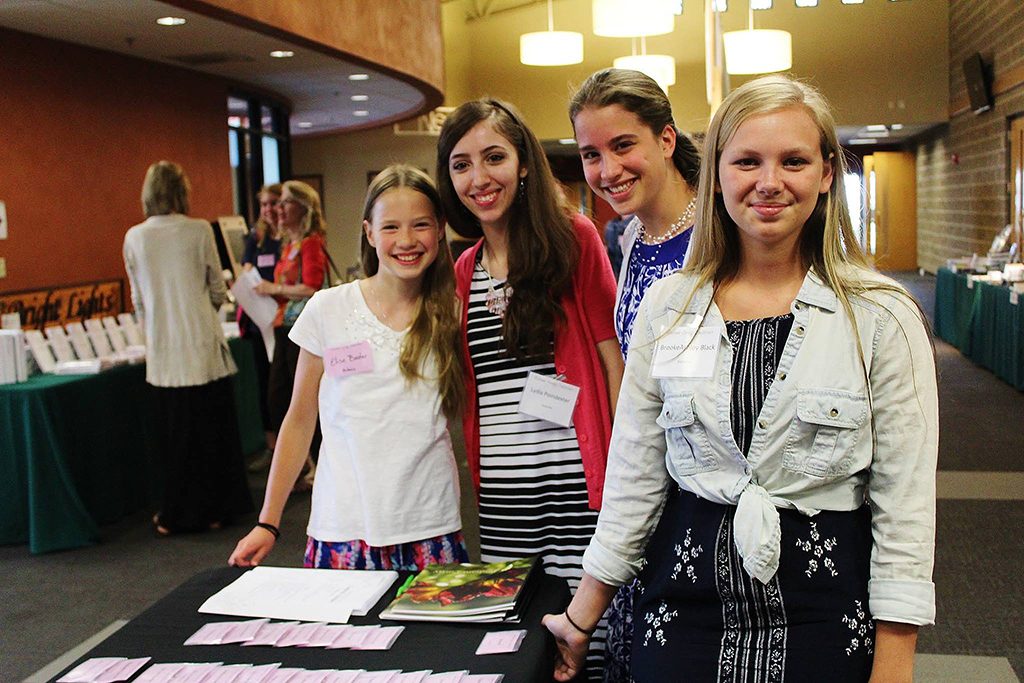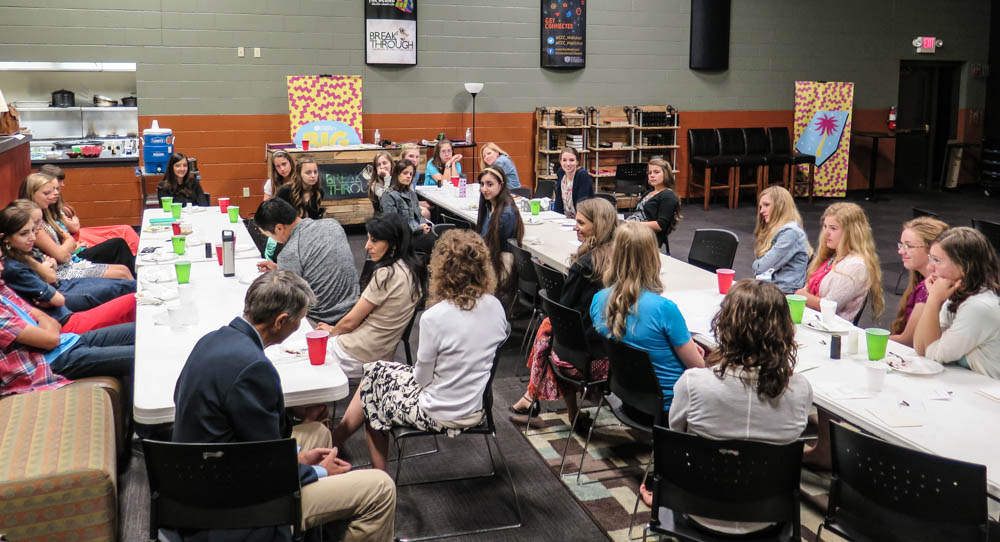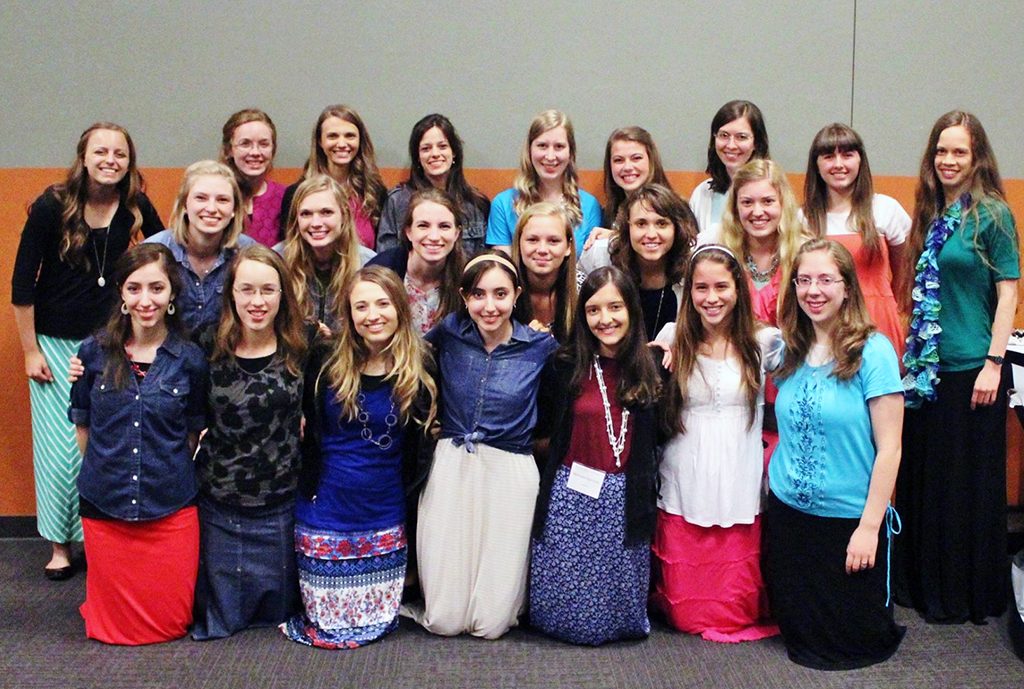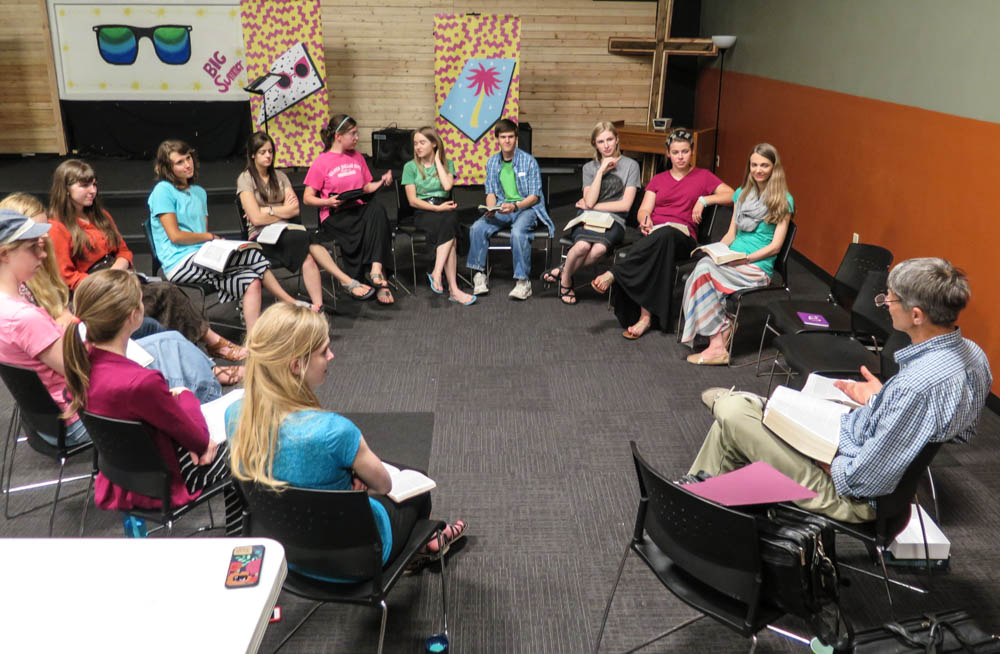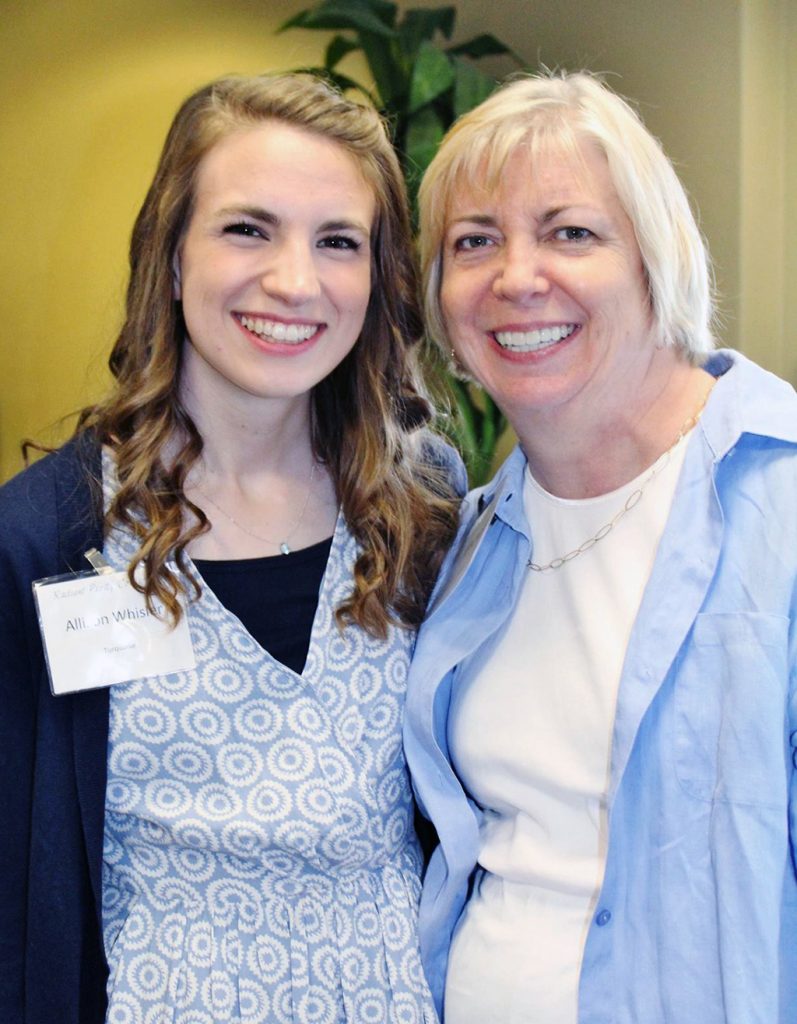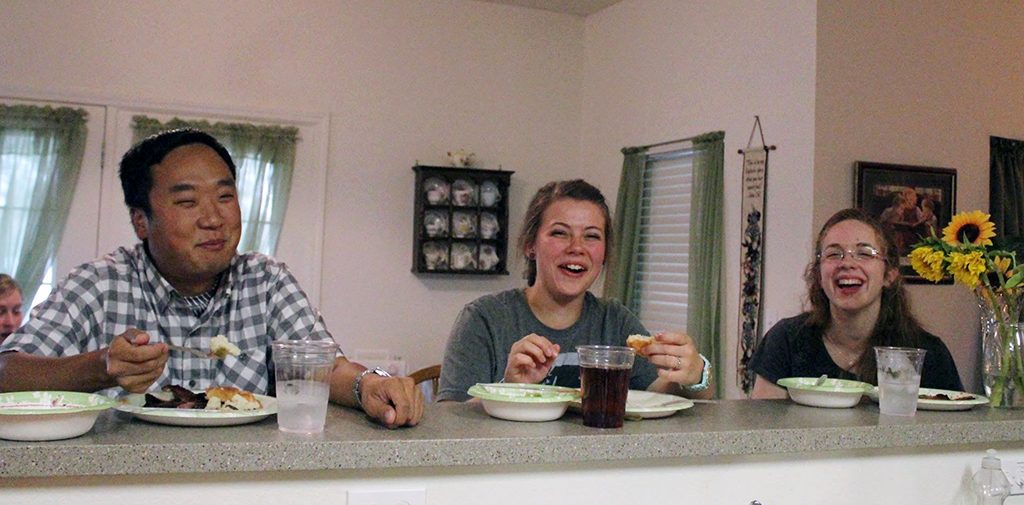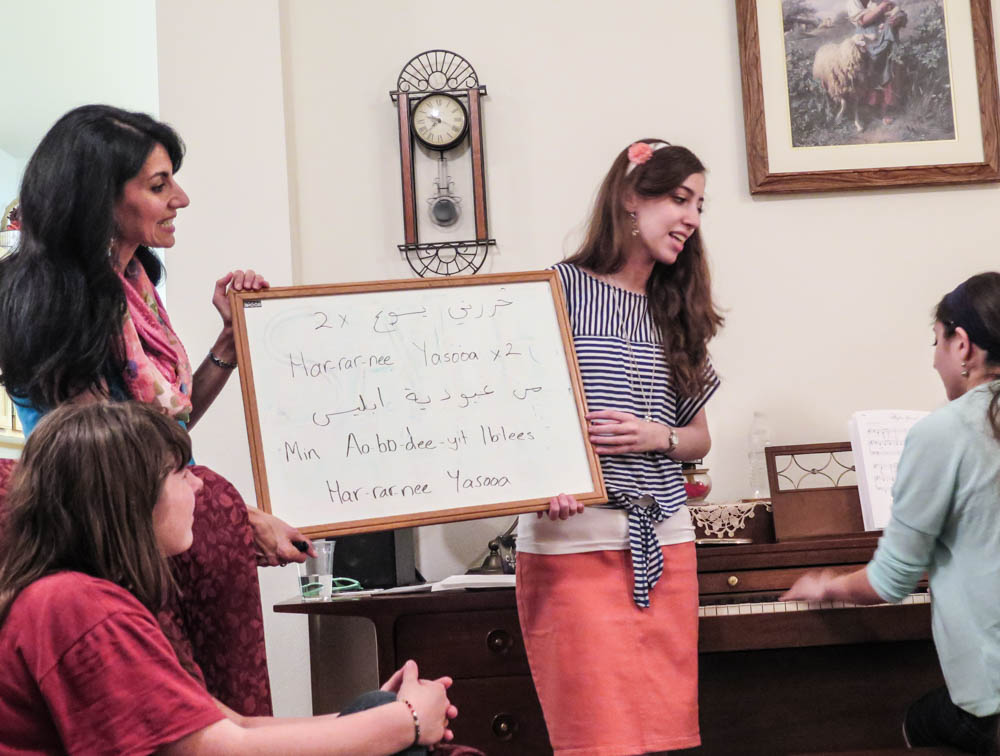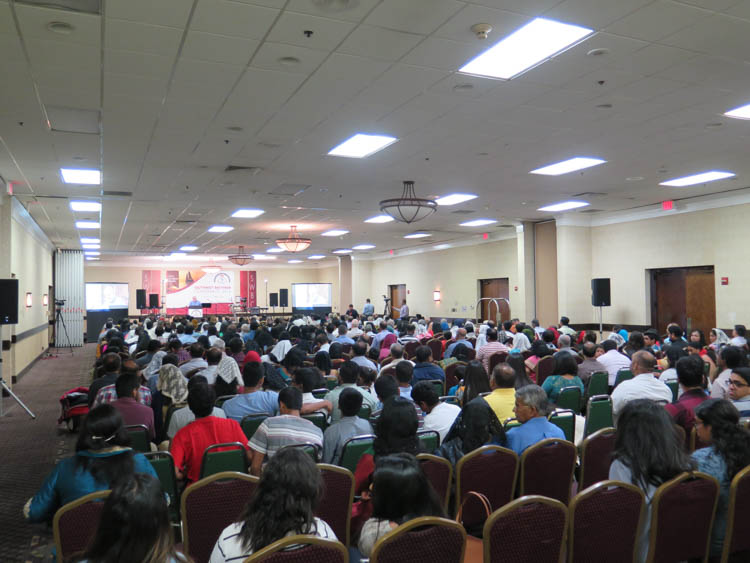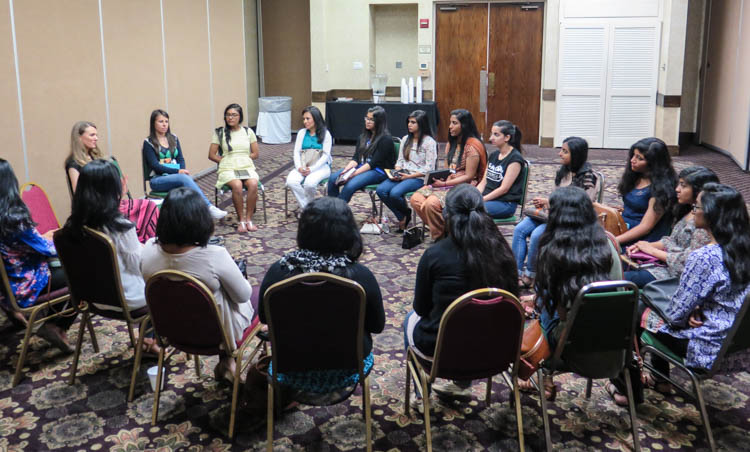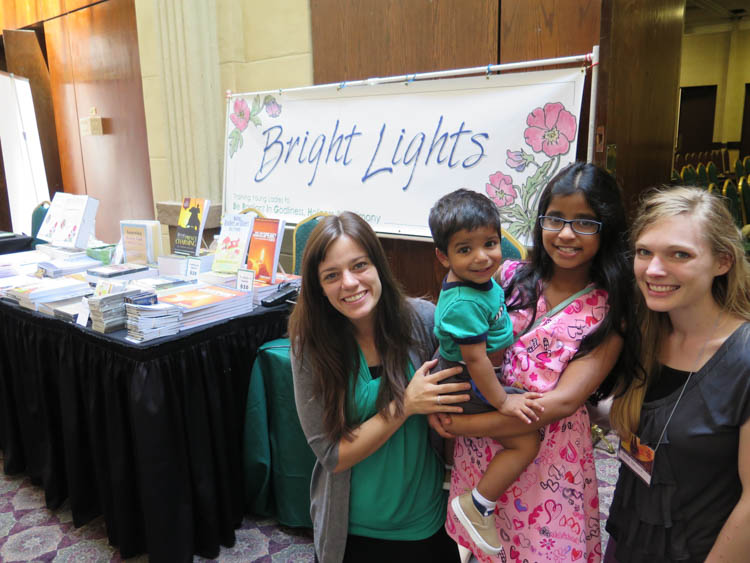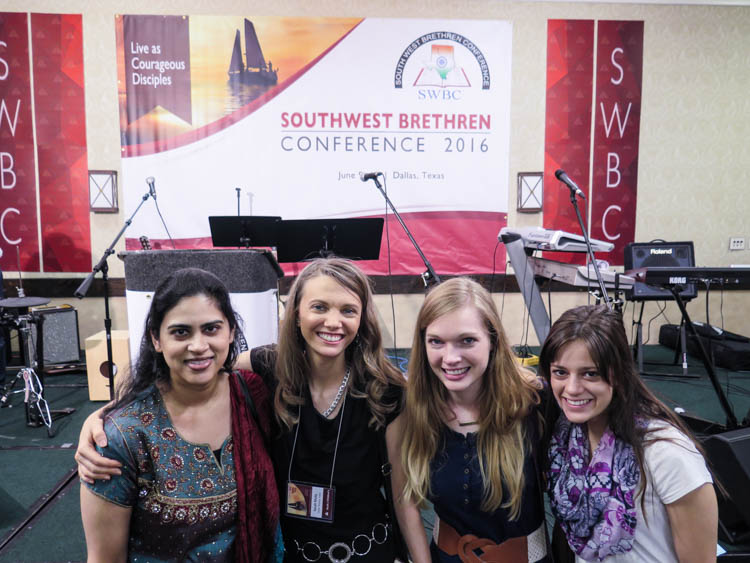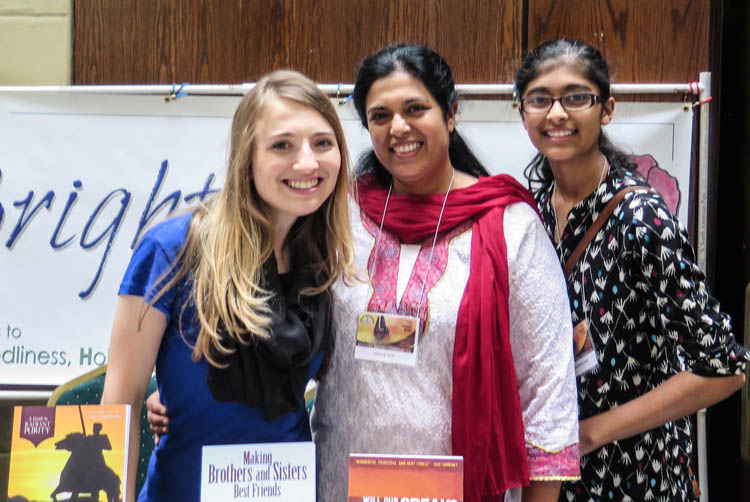Let me set the scene: Washington D.C. July of 2016. Thousands of Public School Teachers. LGBT Activists. Hillary Clinton in person.
Enter: Answers in Genesis supporting a 20-foot gospel booth, giving away thousands of Christ-centered books and DVDs, engaging teachers in gospel conversations, and showing fly-over drone footage from the Ark Encounter on a huge flat screen TV.
 I want to share just a taste with you of how the Lord worked.
I want to share just a taste with you of how the Lord worked.
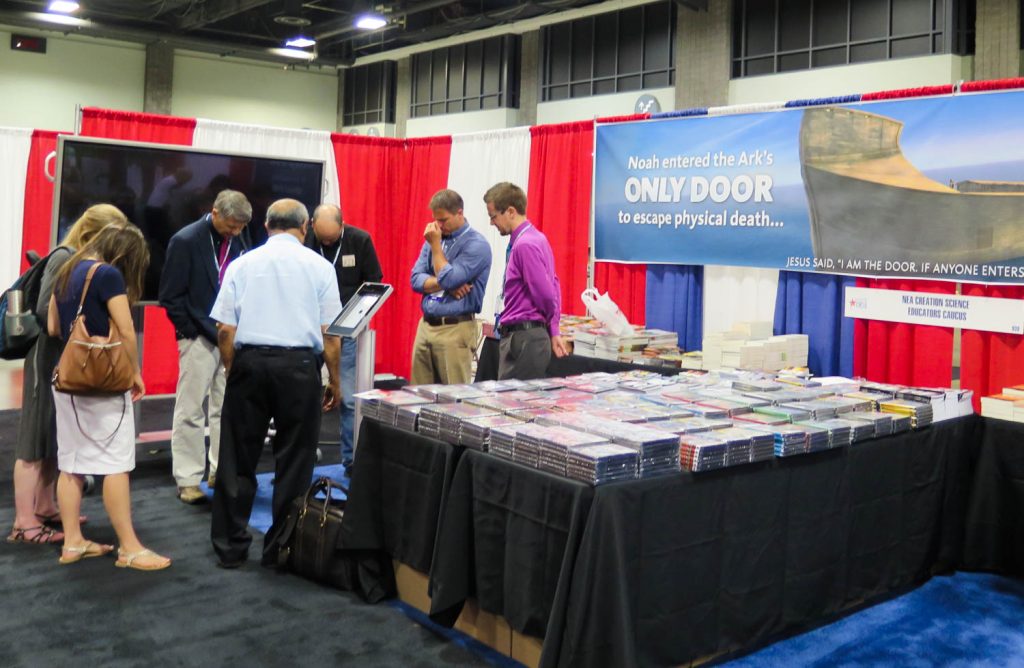 Victories are only victories when they are the work of the Spirit of God. That is why we fervently ask Him to speak through us and touch hearts.
Victories are only victories when they are the work of the Spirit of God. That is why we fervently ask Him to speak through us and touch hearts.
 One benefit of sharing the gospel from a gospel booth is that discussions can be started easily and naturally as we simply explain the message of the materials we are giving away. The books and DVDs teach many topics about science and why we can trust the Bible, but each one ultimately points to the gospel.
One benefit of sharing the gospel from a gospel booth is that discussions can be started easily and naturally as we simply explain the message of the materials we are giving away. The books and DVDs teach many topics about science and why we can trust the Bible, but each one ultimately points to the gospel.
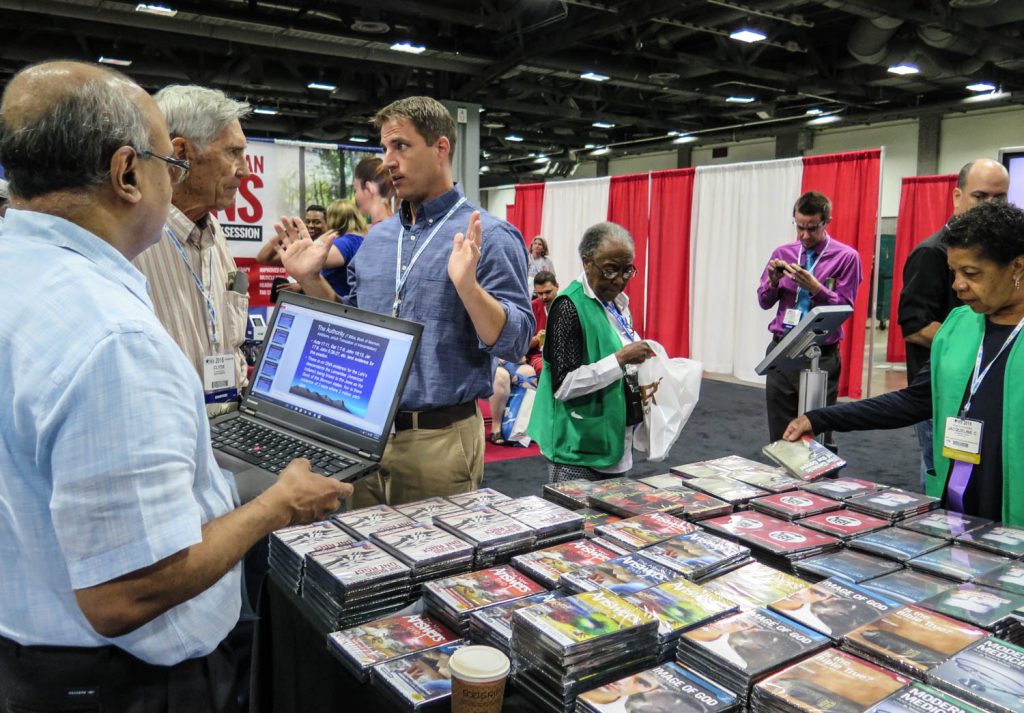 This Mormon man (grey hair) had talked with us last year (I wrote about it in this post) and praise God, he came back this year to visit more! It was a delight to see him again. Bryan Osborne is talking to him in this picture, and Dr. John is pulling up material on his laptop to share. (A typical scene.) This man came back again near the end of the conference to say goodbye to us. I think he could tell we cared about him, and a little bond had formed.
This Mormon man (grey hair) had talked with us last year (I wrote about it in this post) and praise God, he came back this year to visit more! It was a delight to see him again. Bryan Osborne is talking to him in this picture, and Dr. John is pulling up material on his laptop to share. (A typical scene.) This man came back again near the end of the conference to say goodbye to us. I think he could tell we cared about him, and a little bond had formed.
 Here’s our team getting smoothies afterwards one night. If only our team wasn’t in such a serious mood all the time! 😛
Here’s our team getting smoothies afterwards one night. If only our team wasn’t in such a serious mood all the time! 😛
 This was a pro-life booth run by some Christian friends of ours. One morning, Tony Ramsek began talking with a young man in a booth neighboring this pro-life booth. (Tony often goes around and witnesses to other booth vendors.) The theme of the neighboring booth was “Protecting Human Rights.” While talking with the young man, Tony pointed to the collection of babies displayed at this Pro-life booth. (The display shows models of babies from peanut-size to birth size.) Tony asked this young man, “At what point does the baby get their human rights?”
This was a pro-life booth run by some Christian friends of ours. One morning, Tony Ramsek began talking with a young man in a booth neighboring this pro-life booth. (Tony often goes around and witnesses to other booth vendors.) The theme of the neighboring booth was “Protecting Human Rights.” While talking with the young man, Tony pointed to the collection of babies displayed at this Pro-life booth. (The display shows models of babies from peanut-size to birth size.) Tony asked this young man, “At what point does the baby get their human rights?”
The young man looked at the sequence of babies and said, “Whoa. I’m a really liberal person, but you just changed me into a conservative.”
It was by hearing Tony’s question and seeing the model babies that he saw the truth. Tony proceeded to share Jesus Christ with this young man. Please pray for him. Praise God that He is still working and opening people’s eyes, one by one, even in some of the very darkest places, such as the NEA convention.
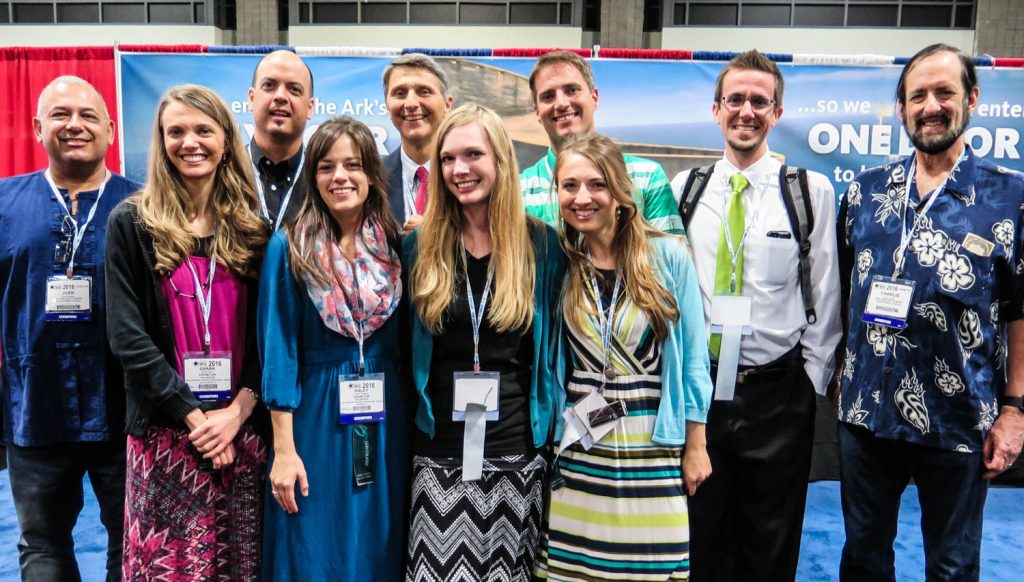 Our team this year (minus Dr. John who had to leave early).
Our team this year (minus Dr. John who had to leave early).
This was the first year that Answers in Genesis speakers Dr. Nathaniel Jeanson (Harvard graduate) and Bryan Osborne were a part of the team. Dr. Jeanson is in the green tie, and Bryan is standing directly behind me.
I loved just listening to them talk to people.
One lady thought our booth was advocating bad science, but her tone changed dramatically as Dr. Jeanson addressed her questions.
Her concern began when I showed her the topics on the back of the Answers 1 DVD, which we were giving away.
“So you guys advocate that the earth is only a few thousand years old? Alright. You lost me,” she told me with disdain in her voice. “I’m open to the idea that the Bible can be applicable to life today—but there are so many things in there that you can’t take literally,” she said.
I noticed that Dr. Jeanson was not engaged in another discussion, and he gladly agreed to join the conversation. He began sharing why carbon 14 dating methods do not prove an old earth. She asked, “So I guess what I was trying to get to is this: does your organization promote that the Bible is literal truth?”
Dr. Jeanson affirmed strongly that yes, it does.
“Why can’t it be that the seven days happened longer ago then we thought?”
“That’s a good question, and there are a couple of different ways to answer that,” Dr. Jeanson replied. He continued, “Is it possible that God took millions of years? Sure, He can do whatever He wants to. Is it possible that a day could mean a thousand years? Again, it is theoretically possible, but I have learned that the best way to judge what the text means is not necessarily my interpretation—but to ask, how do other writers of Scripture interpret it?”
Dr. Jeanson then explained how the Bible is one book, with a beginning, middle, and end. And the writers assume that you’ve read what came before. For example, when John records Jesus’ crucifixion, he makes an obscure reference to the Old Testament, saying, “For these things came to pass to fulfill the Scripture, ‘NOT A BONE OF HIM SHALL BE BROKEN.’” This is referring to a passage in Exodus 12:46 about the Passover lamb (thus, John was teaching his readers that Jesus was the ultimate Passover lamb). This is an example of a big arch in Scripture—a tie from Exodus to John. It’s all the same story. Dr. Jeanson gave a few other examples of “arches” in Scripture: concepts that are established in the beginning and fulfilled at the end.
Dr. Jeanson’s point was this: What does the rest of Scripture say about Genesis? What are the other writers assuming? In Exodus 20, Moses gives the Ten Commandments, the fourth being to “rest the seventh day.”
[It says, “Six days you shall labor, and do all your work, but the seventh day is a Sabbath to the Lord your God. On it you shall not do any work, you, or your son, or your daughter, your male servant, or your female servant, or your livestock, or the sojourner who is within your gates. For in six days the Lord made heaven and earth, the sea, and all that is in them, and rested on the seventh day. Therefore the Lord blessed the Sabbath day and made it holy.” Exodus 20:9-11 ESV]
Dr. Jeanson explained to this lady that the word “day” in Exodus 20 is the same Hebrew word used for “day” back in Genesis chapter 1. In fact, there are other equivalent words used. For example, the Hebrew words for “heaven and earth” in Exodus 20:11 are also the same words used for “heaven and earth” back in Genesis 1:1. So there are multiple links from Exodus chapter twenty to Genesis chapter one.
Dr. Jeanson continued, “Now, in Exodus 20 is it telling us to work for 6 million years and then rest for the 7th million? That could be a really, really bad thing, or a really good thing depending on which part you are in,” Dr. Jeanson said.
She laughed.
He continued, “I think we’ll all agree that means 6 literal days … so those are plain days and he connects it right to God’s creation week.”
She said, “I feel there are so many wonderful things in the Bible to focus on, I just wonder if you are marginalizing yourself by focusing on whether the Scripture can be interpreted exactly today. None of that is about the lessons you’re supposed to learn from the Bible, is it?”
“You’ve just set me up for what I was about to say,” Dr. Jeanson said.
“Okay, go ahead,” she laughed.
He continued, “Because the Bible is a book, the beginning is all the more important. You can’t just jump into the middle of a novel and understand what’s going on. You have to start from the beginning to understand that plot and character development … similarly, there are all kinds of huge arches that start in Genesis and really don’t get finished until Revelation.”
Dr. Jeanson emphasized, “When Paul explains salvation, the whole background to it (why we die in the first place, why we need a Savior) Paul explains by pointing back to Genesis (one man sinned, therefore one Man saves) and then he ties it to Christ (Romans 5). So Paul is connecting Genesis to the central truths of Christianity. I have colleagues who think that Genesis 1-11 is an ancient myth narrative, and who do not believe in a literal Adam and Eve … ”
“Paul lived ‘back in the day’ also,” she said.
“But if we are going to trust Paul [the New Testament] on salvation then we would be logically forced–”
She interrupted, “I could trust someone (like Paul) who is writing back then on what salvation is, more then on what they knew about science.”
Before Dr. Jeanson could really answer this statement, she had to go off to an appointment.
But she said to him, “I really appreciate the conversation, and if I can, I’m going to find you later today.”
This lady was not anti-God or anti-Bible. But she has a low view of the Bible. Second Timothy 3:16 says, “All Scripture is breathed out by God.” Since the Bible is the very Word of our Creator, then why could it not be trusted when it comes to issues related to science? God made the world that scientists study!
And if she cannot believe all of the Bible, then how can she believe any? How can she be sure which part is accurate? This is why it is so important that we stand upon every word of God, and help others see that it CAN be trusted.
Our final evening in DC, we went to a Lebanese restaurant for dinner. Our waitress was from the country of Georgia. She was warm and chatty, and after a little get-to-know-you discussion, we asked her about the spiritual beliefs of her country. Then we asked her about her spiritual beliefs. It felt like just about every time she left the table we’d discuss what we should ask her next time she came back. 🙂
“So you believe in Heaven and Hell right?” I asked.
She did.
“So if you died, where do you think you would go?” I questioned. Her answer surprised me. She replied, “I have never thought about this question before.” This opened the opportunity to share the gospel with her.
It was evident she was enjoying the discussion and loved the positive attention. She even went out of her way to make all of us very delicious [and very gritty!] “Turkish coffee” that you can see us holding.


